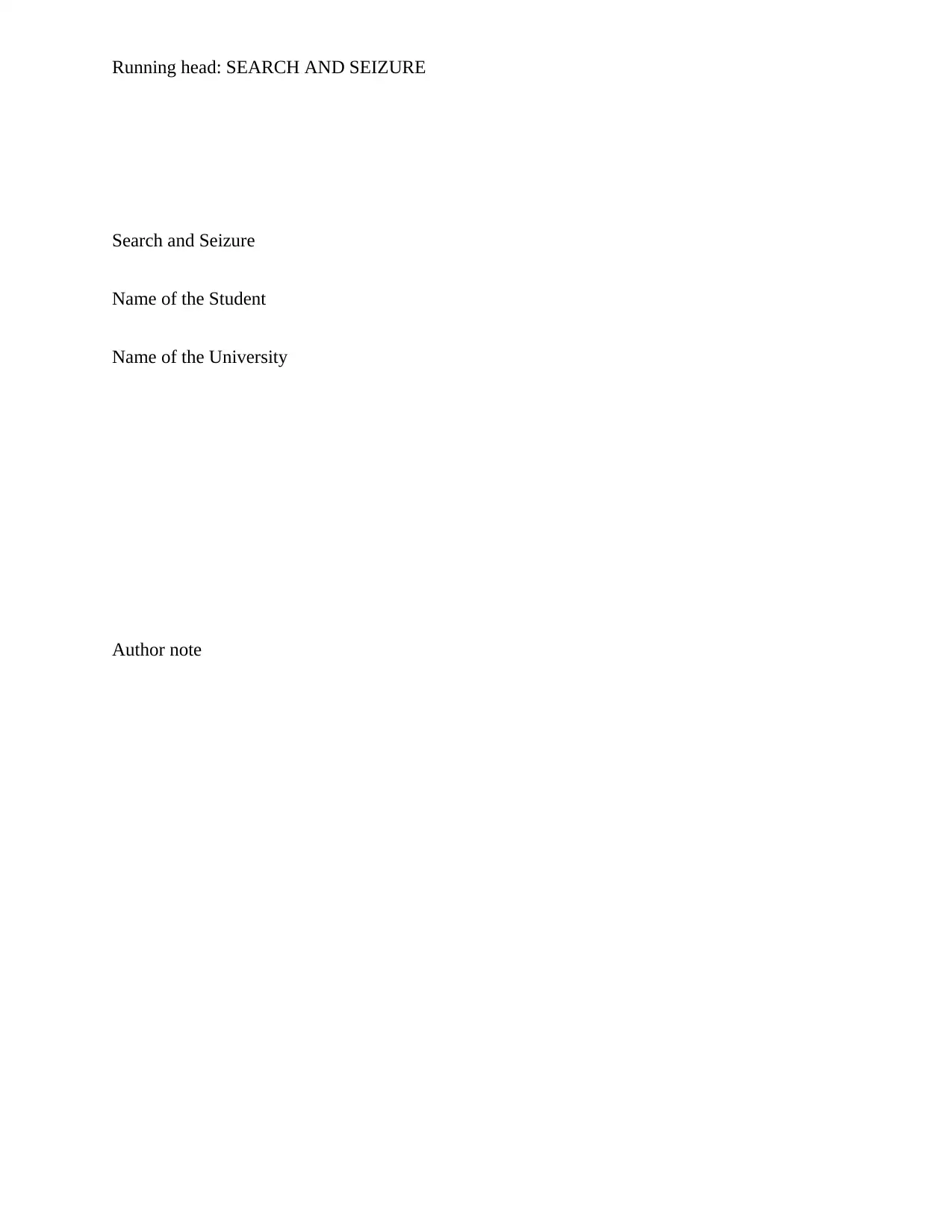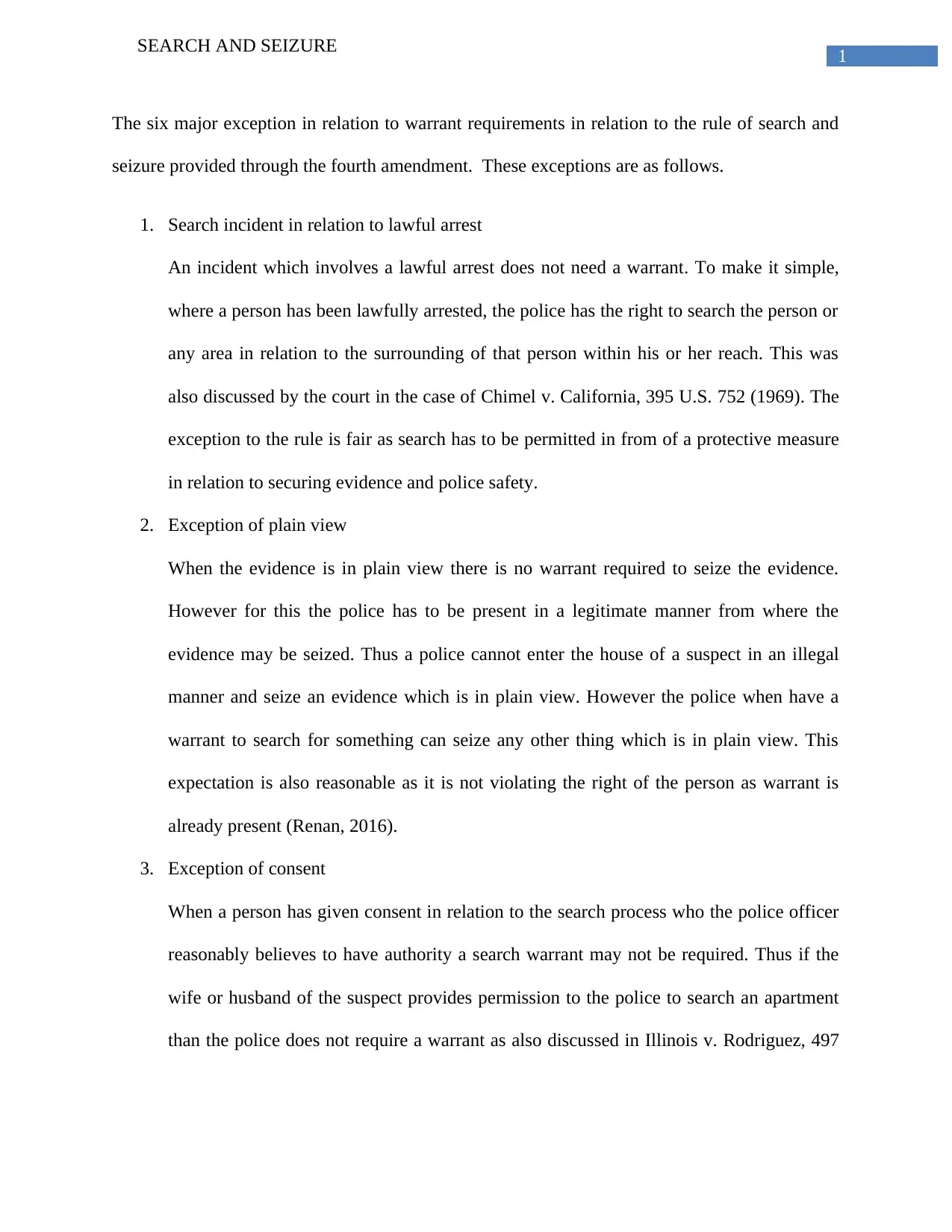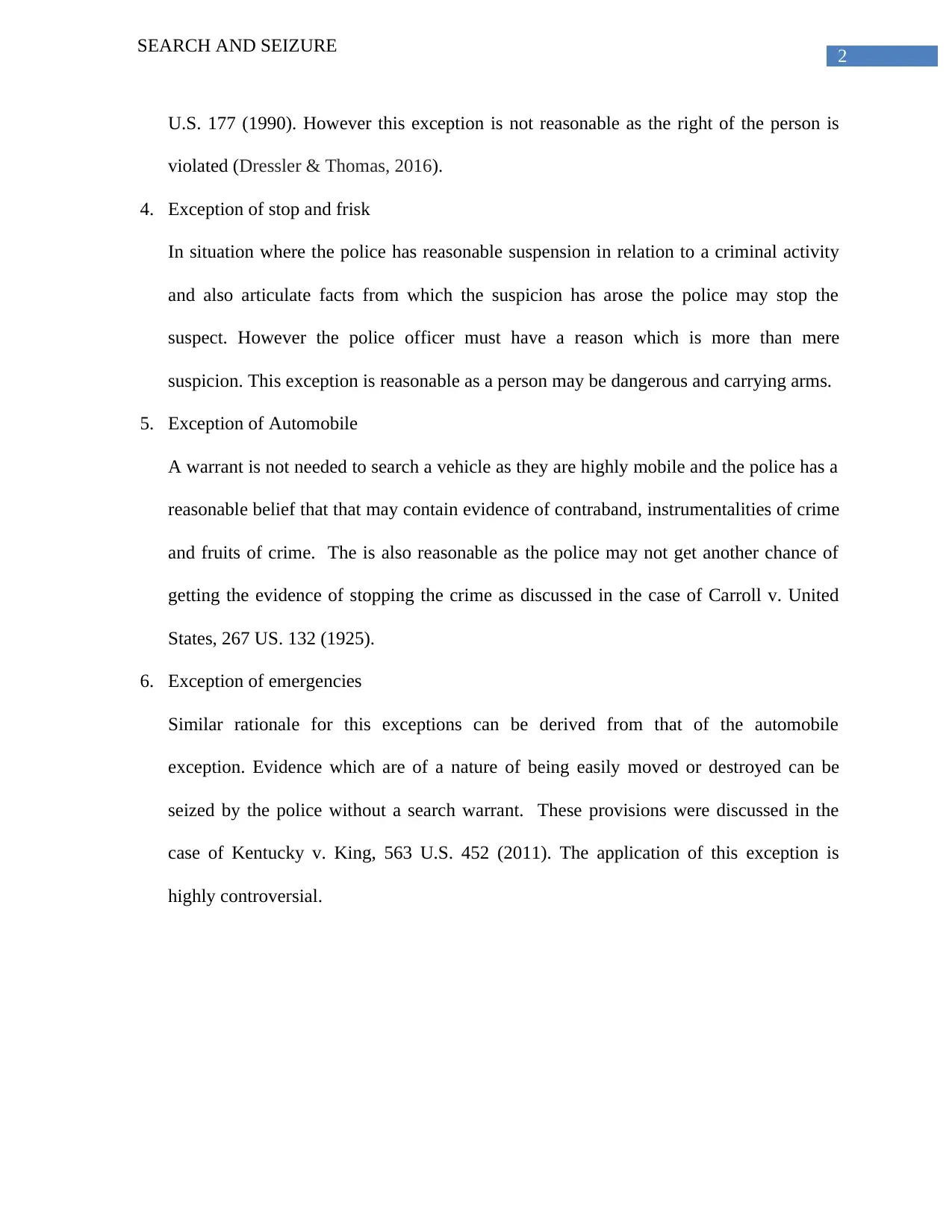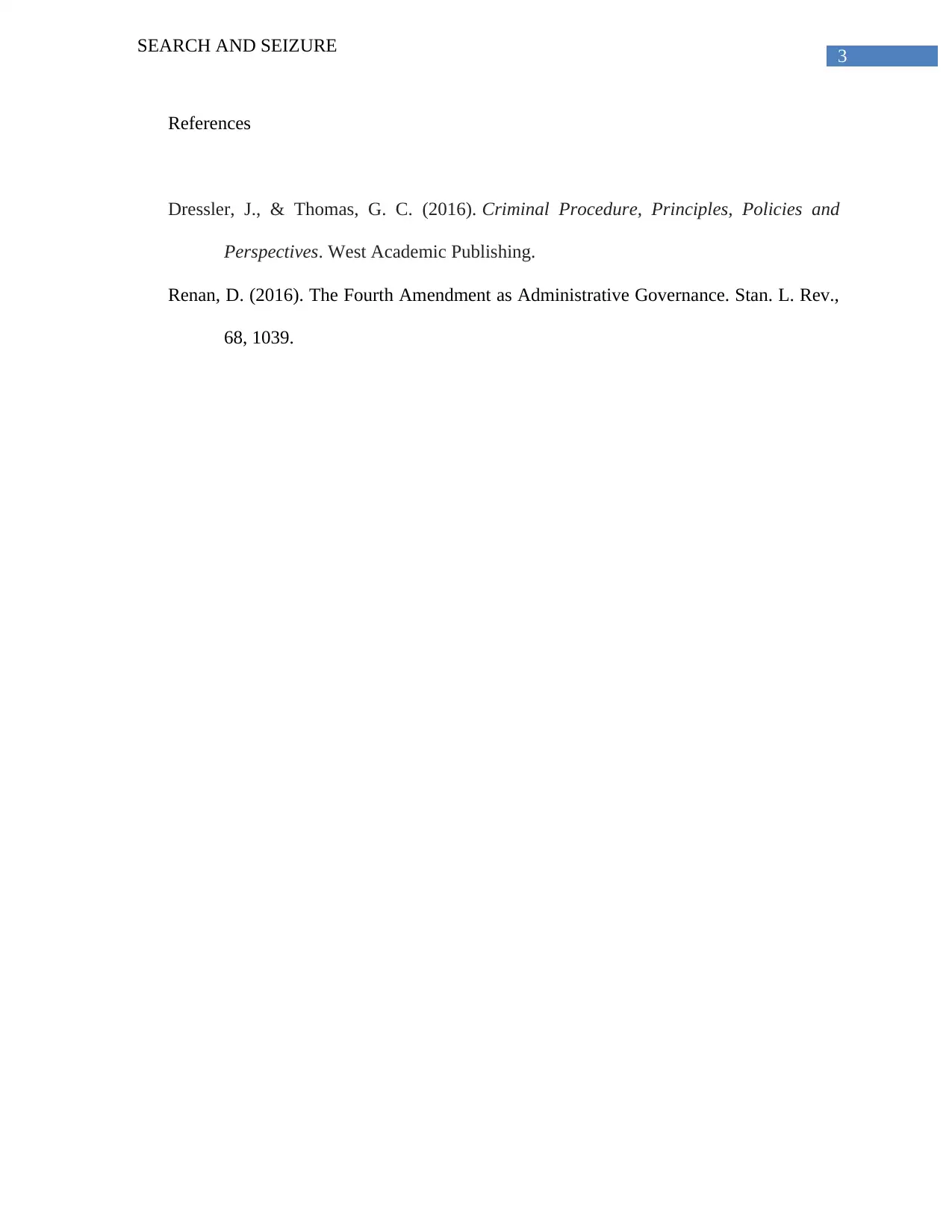Search and Seizure: Exceptions to the Fourth Amendment Warrant Rule
VerifiedAdded on 2020/05/16
|4
|636
|109
Homework Assignment
AI Summary
This assignment provides an overview of the exceptions to the Fourth Amendment's search and seizure rules. It discusses six key exceptions: search incident to a lawful arrest, the plain view doctrine, consent, stop and frisk, the automobile exception, and exigent circumstances. Each exception is explained with its rationale and relevant case law, such as Chimel v. California, Illinois v. Rodriguez, Carroll v. United States, and Kentucky v. King. The assignment highlights the legal basis for each exception and its implications for law enforcement. The assignment also includes references to legal scholars and case law to support the analysis. The analysis emphasizes the balance between individual rights and the needs of law enforcement.
1 out of 4











![[object Object]](/_next/static/media/star-bottom.7253800d.svg)